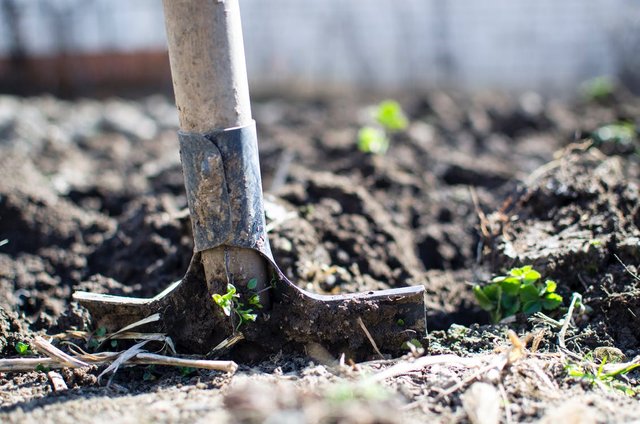Tips For Maintaining A Chemical-Free Organic Garden

As fun as planning to grow your own organic garden may seem, it is very important to start doing your research and getting your equipment before you do so. Another thing is to take your climate into account, so you know what can grow and what cannot. Basically, the sensible advice that you have, the better. The tips below can certainly help you.
Reduce the need for pesticides in your garden by planting native crops. Native plants will have a better resistance against the bugs and bacteria of your area, and will be better equipped to compete with native weeds. Native plants will attract beneficial native insects, such as ladybugs, which can naturally control pest problems without the need for chemicals.
Coffee grounds and leftover coffee can be used to repel slugs. If you have an issue with slugs in your garden, you can repel them effectively with coffee. You can sprinkle coffee grounds on the soil around your plants or use leftover coffee in a spray bottle to spray the slugs directly.
Hang shiny silver objects throughout your garden. These can act as natural pest deterrents; no need for chemicals. The reflections can disorient flying pests such as aphids that require the sun to direct their flight, and may frighten off larger pests such as birds, and even rabbits or deer.
When growing indoor plants, the thermostat should be set between 65-75 degrees throughout the day. This level of heat is required in order for plants to grow. If there are times during the year when you would prefer not to have the temperature that high, another solution you can utilize is to purchase heat lamps for your organic plants.
As your seeds sprout, they require less warmth than before. To ensure that your plants do not suffer shock, start eliminating the use of a heat source. Remove plastic films on containers to prevent warmth and humidity from penetrating them. You should know when the right time is if you are keeping an eye on the seeds.
Embrace earthworms in the organic garden! Earthworms are an organic gardener's best friend. Through tunneling and their nitrogen-rich castings, they can help to aerate the soil. This improves the amount of oxygen that gets to a plant's roots, improves water retention capacity, and keeps the soil loose and workable. They actually raise much-needed minerals from the garden's subsoil to the topsoil, where plants can get the greatest benefit. These worms also break up hardpan soil, which is detrimental to root growth.
Tend to your garden a few steps at a time. A garden requires ongoing maintenance, and becomes a big time drain if you let things pile up until the weekend. Stop by the garden for a few minutes each day and deadhead some flowers while you're waiting for dinner to cook or pull a few weeds while watching the kids play.
Put coffee grounds in your soil. Coffee grounds are full of nitrogenous nutrients that growing plants need. Plants need nitrogen in order to thrive, so give it a natural source with coffee grounds, then watch everything come to life much more quickly.
When first growing a garden, attempt to put as much effort into the first bed as possible. Land that hasn't been used for a while needs an overhaul to begin changing into a viable spot for plants. Usually these regions either lack the right nutrients or consistency of soil. If you plan to make a garden out of patch, make sure that it has all the right pre-conditions to planting.
Rotate your crops to prevent permanent populations of pests in your garden. As with any ecosystem, pests need a certain amount of time to nest and build up a proper population within a garden. These pests are specially suited for one environment and one food source. By switching their food source you can essentially keep your pest population down simply because they are unable to adapt to the new type of plant.
Test your soil before starting your organic garden. A healthy soil is the primary ingredient in a healthy garden. If you start by testing your soil, you will know what nutrients it lacks, and also which nutrients are in over abundance. Once you find out where your soil stands, you can make natural modifications to help ensure a healthy start for your garden.
Grow basil successfully. Basil is an annual warm-season herb, very susceptible to cold and frost. Sow seed in spring at a depth of about 1/2 inch in full sun. Keep the soil evenly moist. When the basil reaches about 6 inches, pinch out the top to encourage bushy growth. Pick continuously before any flower buds open. Pick leaves in the morning after dew has dried, and don't over wash leaves, as you will lose the aromatic oils.
Planning for your own organic garden is exciting. You can now apply your newly acquired knowledge so that you can start growing healthier, happier plants, that bear a lot of produce for you and your family.
Your post had been curated by the @buildawhale team and mentioned here:
https://steemit.com/buildawhale/@buildawhale/buildawhale-curation-digest-9-14-17
You have received a Whaleshare upvote (@officialfuzzy) thanks to @buildawhale and @akrid. Keep up the good work and content.
This post has received a 1.98 % upvote from @buildawhale thanks to: @samdenton. Send 0.100 or more SBD to @buildawhale with a post link in the memo field to bid on the next vote.
To support our curation initiative, please vote on my owner, @themarkymark, as a Steem Witness
This post has received a Bellyrub and 0.46 % upvote from @bellyrub thanks to: @samdenton. Send SBD to @bellyrub with a post link in the memo field to bid on the next vote, every 2.4 hours. Be sure to vote for my Pops, @zeartul, as Steem Witness Hope you enjoyed your bellyrub!